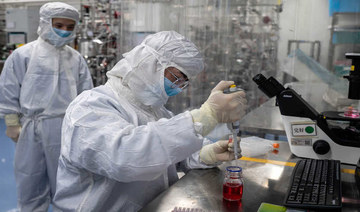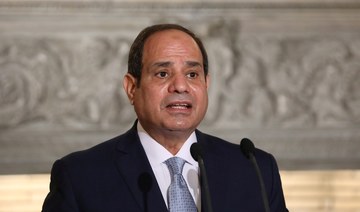CAIRO: Egyptian Minister of Health and Population Hala Zayed inspected the factory complex of the Egyptian Holding Company for Biological Products and Vaccines (VACSERA) in the Sixth of October City.
The minister followed up on the final preparations being made on the new production lines for the manufacture of vaccines, with equipment costing about $17 million, in addition to $5.1 million in construction.
Khaled Mujahid, the spokesman for the Egyptian Ministry of Health, said that the minister confirmed that the VACSERA factories will be the largest vaccine production complex in the Middle East and Africa and will contribute to raising the production capacity of coronavirus disease (COVID-19) vaccines in cooperation with various vaccine-producing companies in the world.
During her visit to the complex, Zayed inspected the departments dedicated to the production of the vaccines, including a production line, eight central laboratories to monitor the vaccines and a central refrigerator that can store 150 million doses. The production capacity of the factories can reach 3 million doses per day, equivalent to six times the production capacity of the company’s factories in Agouza.
The minister praised the readiness of the VACSERA factory complex, which is environmentally friendly and which was built according to the highest levels of quality and according to the standards of the World Health Organization (WHO). Last September, the WHO sent a delegation of experts to evaluate the production lines at the VACSERA factories and praised the designs and construction.
Zayed confirmed that the company is the state’s strong arm in the manufacture of vaccines, which will put Egypt in the ranks of the leading countries in this field.
The factory complex is scheduled to manufacture polio vaccines of all kinds, as well as the pneumococcal bacteria vaccine in cooperation with European companies.
Mujahid added that the complex will work in parallel with the company’s production lines in the Agouza area, which have already started manufacturing the vaccine in cooperation with the Chinese company Sinovac.




























